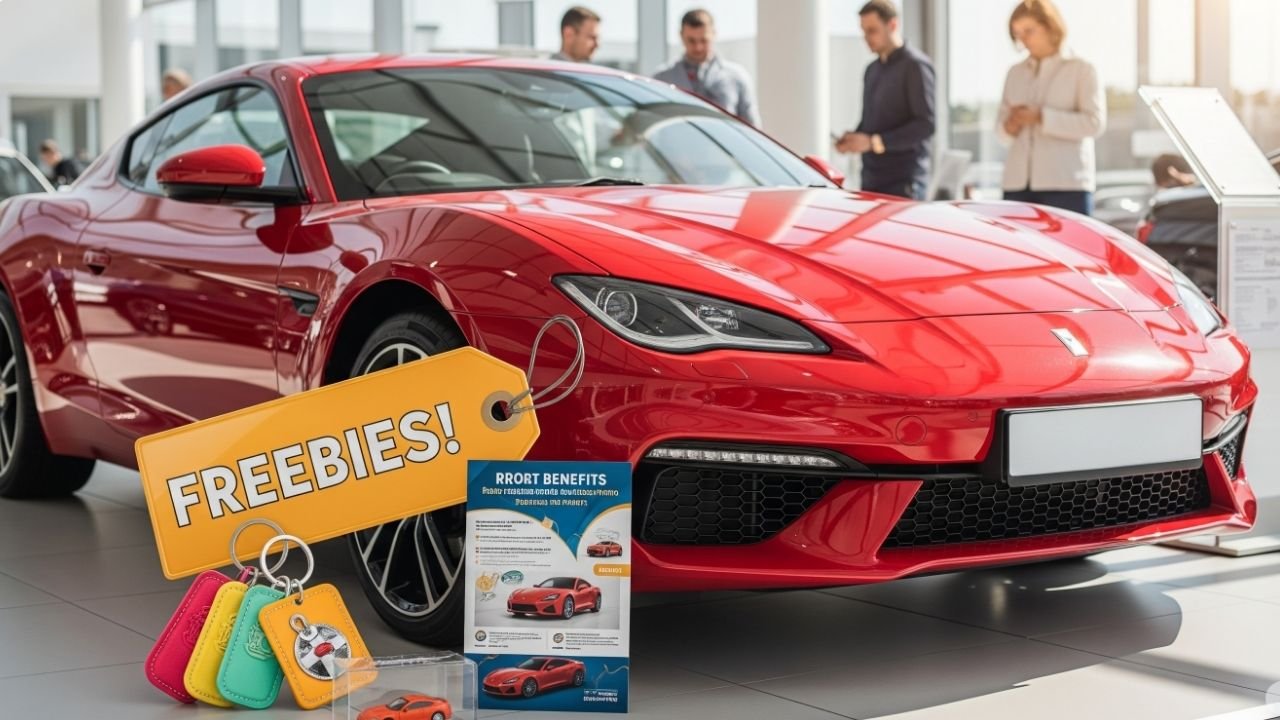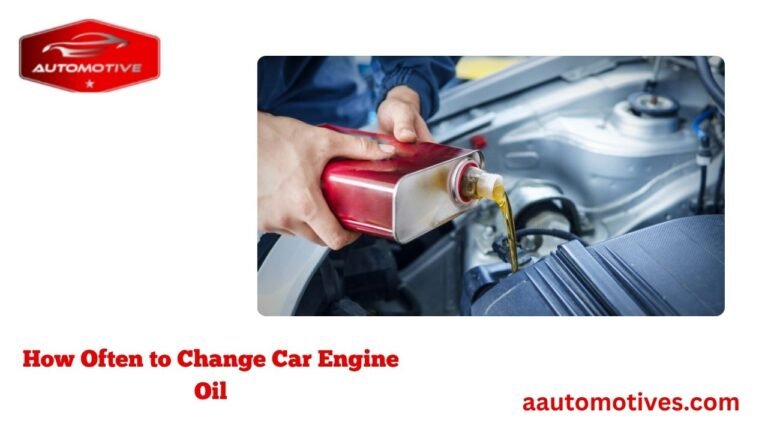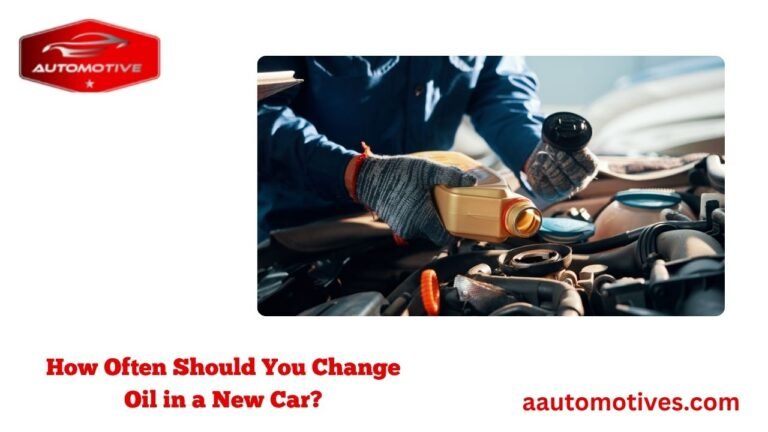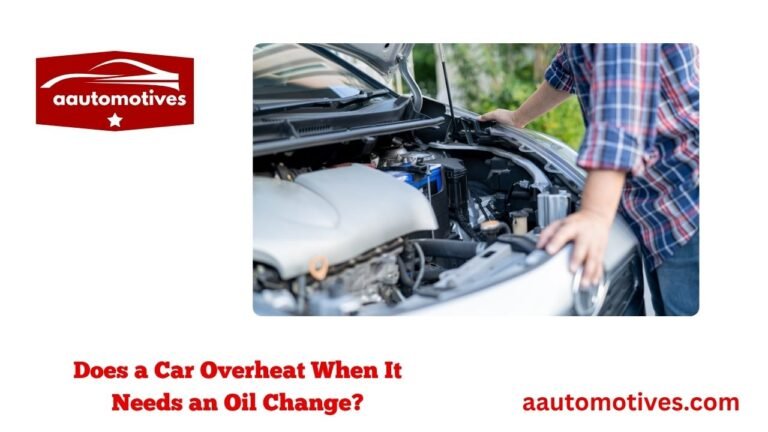Why Car Makers Are Offering Freebies

Buying a car is one of the biggest decisions we make. It’s right up there with getting married or choosing a new job. There’s excitement—yes. But also hesitation. “Am I making the right choice? What if something goes wrong?” That inner voice can get really loud.
In order to help customers feel comfortable with their decision to purchase a new car, manufacturers are offering extended warranties, free oil changes, and maintenance checks. This is an effort to offset something deeper—rising car prices, inflation, technology complexity, and fear of buyer’s remorse.
We’re not just talking about a few extra perks. These incentives are part of a carefully planned strategy. Carmakers want to earn your trust, not just your money. Let’s break it all down. You’ll see how these offers work in your favor—and what’s really going on behind the scenes.
In This Article
- 1 Why Customers Feel Uneasy Buying a New Car Today
- 2 Understanding the Real Cost Behind the Perks
- 3 A Personal Story: When My Free Maintenance Saved Me ₹12,000
- 4 What’s Really Being Offset? A Deeper Dive into the Motive
- 5 Are These Incentives Always Worth It? Sometimes Yes, Sometimes No
- 6 How These Incentives Affect Buying Behavior Globally
- 7 The Emotional Safety Net: Why It Really Works
- 8 How You Can Use This to Your Advantage
- 9 Real-World Example: Kia vs Honda
- 10 Common Misconceptions About Free Car Perks
- 11 Emotional Marketing: How It’s Shaping the Auto Industry
- 12 FAQs: Everything You Want to Know
- 12.1 1. Why do manufacturers offer free oil changes and maintenance?
- 12.2 2. Can I still negotiate if these perks are already included?
- 12.3 3. Are extended warranties really worth it?
- 12.4 4. Do all dealerships offer the same perks?
- 12.5 5. What’s usually covered in free maintenance?
- 12.6 6. Does it affect my resale value?
- 12.7 7. Can I transfer these perks if I sell the car?
- 12.8 8. What should I ask before signing the dotted line?
- 13 Final Thoughts: It’s About Confidence, Not Just Convenience
Why Customers Feel Uneasy Buying a New Car Today
When my cousin Rajib bought his first new car last year, he called me almost every day for a week. Not to show it off—he was worried. He’d spent a big chunk of his savings. “Did I do the right thing?” he asked. That doubt is normal.
There are a few reasons buyers feel nervous:
- Car prices are at record highs.
- Loan terms are longer and interest rates fluctuate.
- Car technology is complex and hard to repair.
- EV vs gas? Nobody wants to bet wrong.
- Inflation and job uncertainty linger in the background.
With so many variables, it’s no wonder manufacturers are stepping in. They’re not just being generous. In order to help customers feel comfortable with their decision to purchase a new car, manufacturers are offering extended warranties, free oil changes, and maintenance checks. This is an effort to offset the fear, financial stress, and knowledge gap most buyers carry.
Understanding the Real Cost Behind the Perks
Let’s get one thing straight—nothing is ever really free. Those “free” oil changes and maintenance checks? They’re priced into the car. But that doesn’t mean you’re being tricked.
Here’s what manufacturers are actually doing:
| Perk | What It Means | Value to Buyer |
|---|---|---|
| Extended Warranty | Covers repairs beyond the factory period | Peace of mind for 3-5 extra years |
| Free Oil Changes | Includes scheduled visits for 1–3 years | Saves ₹6,000–₹15,000+ over time |
| Maintenance Checks | Regular inspections of tires, brakes, fluids | Prevents big repair costs |
When you’re worried about the car breaking down or surprise bills, these services feel like a safety net. In order to help customers feel comfortable with their decision to purchase a new car, manufacturers are offering extended warranties, free oil changes, and maintenance checks. This is an effort to offset the emotional and financial risk that comes with modern vehicle ownership.
A Personal Story: When My Free Maintenance Saved Me ₹12,000
Back in 2022, I bought a hatchback from a well-known Japanese brand. They offered two years of free maintenance, and honestly, I didn’t think much of it at the time. I just nodded along.
Fast forward 14 months—I noticed a strange knocking sound in the engine. Turned out to be a belt tensioner issue. Normally, it would’ve cost around ₹12,000 to fix. But since I was still within my maintenance period, the fix was free.
At that moment, I realized the true power of these perks. In order to help customers feel comfortable with their decision to purchase a new car, manufacturers are offering extended warranties, free oil changes, and maintenance checks. This is an effort to offset those exact moments of panic when something breaks unexpectedly.
What’s Really Being Offset? A Deeper Dive into the Motive
So what are car brands actually trying to offset here?
1. High Vehicle Prices
New cars now cost more than ever. In both developed and emerging markets, prices are 20–30% higher than they were five years ago.
2. Post-Pandemic Economic Pressure
People are still recovering from job loss, rising rent, and inflation. Spending ₹10–25 lakhs on a car is a huge commitment.
3. Technological Intimidation
Cars now come with 200+ sensors, electric engines, and infotainment systems. Maintenance feels scary and expensive.
4. Trust Deficit
Let’s face it—many people feel car dealerships aren’t transparent. Incentives help bridge that trust gap.
That’s why in order to help customers feel comfortable with their decision to purchase a new car, manufacturers are offering extended warranties, free oil changes, and maintenance checks. This is an effort to offset economic anxiety, tech fear, and decision paralysis.
Are These Incentives Always Worth It? Sometimes Yes, Sometimes No
It depends on your driving habits. Here’s a quick guide:
- If you drive under 10,000 km/year, free maintenance will easily cover most basic needs.
- If you live in a city with rough roads or extreme weather, the checks can help catch early damage.
- If you plan to sell the car in 3 years, having warranty coverage increases resale value.
But if you’re someone who loves DIY fixes, or rarely drives, the value might be less. It’s important to evaluate whether you’ll actually use the perks.
Still, from a psychological standpoint, they give you the confidence to say yes to that big purchase.
How These Incentives Affect Buying Behavior Globally
Different countries have different consumer mindsets. In the U.S., people expect perks. In Germany, trust in engineering matters more. In India, we often look for long-term value over flashy deals. But no matter where you’re buying a car, emotional reassurance is universal.
In order to help customers feel comfortable with their decision to purchase a new car, manufacturers are offering extended warranties, free oil changes, and maintenance checks. This is an effort to offset not just rising prices but also cultural hesitations and post-pandemic risk aversion.
For example:
- Japanese brands offer long-term warranties to showcase reliability.
- German automakers now bundle digital service support with warranties.
- Indian carmakers include fuel vouchers or maintenance offers during festive seasons like Diwali or Eid.
It’s a global movement, tailored to local sentiments.
The Emotional Safety Net: Why It Really Works
Let’s think of it like this: buying a car is like jumping into a swimming pool. You might be excited, but you’re also unsure about how deep it is, how cold the water might be, or whether you’ll be able to swim back. What manufacturers are doing is throwing you a floatation device—a reassurance that if anything goes wrong, you’re not on your own.
In order to help customers feel comfortable with their decision to purchase a new car, manufacturers are offering extended warranties, free oil changes, and maintenance checks. This is an effort to offset not only financial strain but also emotional uncertainty—that invisible voice that whispers, What if this car turns out to be a mistake?
This approach works well because:
- It builds trust early in the customer relationship.
- It eases decision-making by removing friction.
- It reduces buyer’s remorse—a common experience within weeks of buying.
That’s powerful. It turns hesitation into action. Doubt into delight.
How You Can Use This to Your Advantage
Here’s the good news: these incentives aren’t fixed. You can often negotiate them—or at least push for upgrades. Knowing this puts you in the driver’s seat (pun intended).
Here’s how:
- Ask for clarity: Some “free maintenance” plans only cover basics like oil and filters. Ask for a full list.
- Bundle it in: Say you’re torn between two models. Ask the dealer to sweeten the deal with extended service.
- Use it to reduce cost: If you’re not keen on a maintenance plan, negotiate a discount instead.
Remember: in order to help customers feel comfortable with their decision to purchase a new car, manufacturers are offering extended warranties, free oil changes, and maintenance checks. This is an effort to offset hesitation—so don’t hesitate to use that to your benefit.
Real-World Example: Kia vs Honda
Let’s say you’re choosing between a new Kia and a Honda sedan. Kia may offer a 5-year warranty plus 3 years of maintenance. Honda might only offer a 3-year warranty with 2 years of free service.
At first glance, Kia looks like the better deal. But go deeper:
| Feature | Kia | Honda |
|---|---|---|
| Warranty | 5 years | 3 years |
| Free Service | 3 years | 2 years |
| Service Network | Smaller | Larger |
| Resale Value | Medium | Higher |
It’s not just about what’s free—it’s about what’s worth more in the long run.
That’s why these offers are tools—not traps. And in order to help customers feel comfortable with their decision to purchase a new car, manufacturers are offering extended warranties, free oil changes, and maintenance checks. This is an effort to offset not just fear, but competition.
Common Misconceptions About Free Car Perks
Let’s bust some myths quickly.
- Myth: Free oil changes cover all fluids.
Truth: They usually only cover engine oil. Coolant, brake fluid, or transmission oil may still cost extra. - Myth: Warranty covers everything.
Truth: Warranties often exclude wear-and-tear items like tires, brakes, or lights. - Myth: These offers mean the car is likely to break down.
Truth: These perks are preventive—not reactive. Manufacturers aren’t “covering up” flaws. - Myth: You can only claim services at the selling dealership.
- Truth: Most automakers allow claims at any authorized service center nationwide.
Understanding these can help you make smarter, less emotional decisions.
Emotional Marketing: How It’s Shaping the Auto Industry
Behind the scenes, this is all part of a marketing strategy known as emotional branding. Brands are no longer just selling cars—they’re selling peace of mind, lifestyle, identity.
In order to help customers feel comfortable with their decision to purchase a new car, manufacturers are offering extended warranties, free oil changes, and maintenance checks. This is an effort to offset emotional hesitation by reinforcing values like safety, care, and support.
You see it in ads:
- Parents strapping their kids in a safe new car.
- Long road trips with friends and laughter.
- No tension, no repairs, just memories.
These visuals speak to the heart—and the free perks back them up with action.
FAQs: Everything You Want to Know
1. Why do manufacturers offer free oil changes and maintenance?
In order to help customers feel comfortable with their decision to purchase a new car, manufacturers are offering extended warranties, free oil changes, and maintenance checks. This is an effort to offset the fear of costly repairs and to boost consumer trust.
2. Can I still negotiate if these perks are already included?
Yes! You can negotiate additional accessories, discounts, or even swap perks you don’t need.
3. Are extended warranties really worth it?
If you plan to keep the car for over five years, yes—it can save you from big repair costs later.
4. Do all dealerships offer the same perks?
Not always. Some local dealers add extras during seasonal sales. Always ask.
5. What’s usually covered in free maintenance?
Typically: engine oil, oil filter, general inspections, tire rotations, and fluid top-ups.
6. Does it affect my resale value?
Yes. Cars with a warranty and maintenance record often sell for a higher price.
7. Can I transfer these perks if I sell the car?
Many warranties and service plans are transferable—but confirm with your dealer.
8. What should I ask before signing the dotted line?
Ask: How long do the services last? What’s included? Are there limits? And can they be transferred?
Final Thoughts: It’s About Confidence, Not Just Convenience
At the end of the day, we all want to feel confident when we buy something big. Not just about the product—but about ourselves. A car is more than just metal and wheels. It’s your freedom, your safety, your memories-in-the-making.
So when manufacturers offer extended warranties, free oil changes, and maintenance checks, it’s not just generosity—it’s smart psychology. In order to help customers feel comfortable with their decision to purchase a new car, manufacturers are offering extended warranties, free oil changes, and maintenance checks. This is an effort to offset your doubts before you even voice them.
It’s a handshake in disguise. A small voice saying, “We’ve got you.”
So next time you’re car shopping and see those perks, remember: you’re not just getting a better deal—you’re getting peace of mind.






